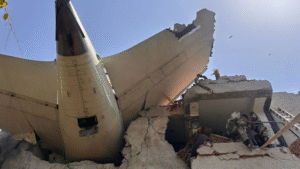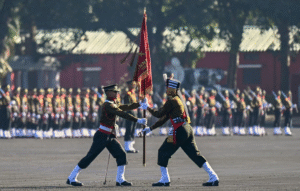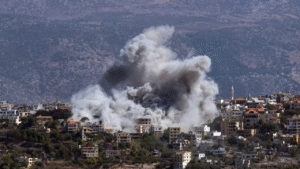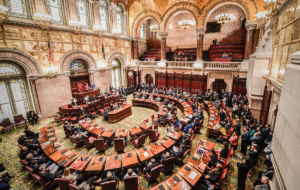The Shadow of Pahalgam: Pakistan’s Warning and the Specter of Escalation
The picturesque valley of Pahalgam, recently marred by a brutal terror attack that claimed the lives of 26 individuals, has become the focal point of escalating tensions between India and Pakistan. In the aftermath of this tragedy, a stark warning issued by a Pakistani minister regarding a potential Indian military strike has amplified the already strained relationship between the two nuclear-armed neighbors. This pronouncement, citing heightened concerns and perceived imminent threats, underscores the fragility of peace in the region and raises serious questions about the potential for further conflict.
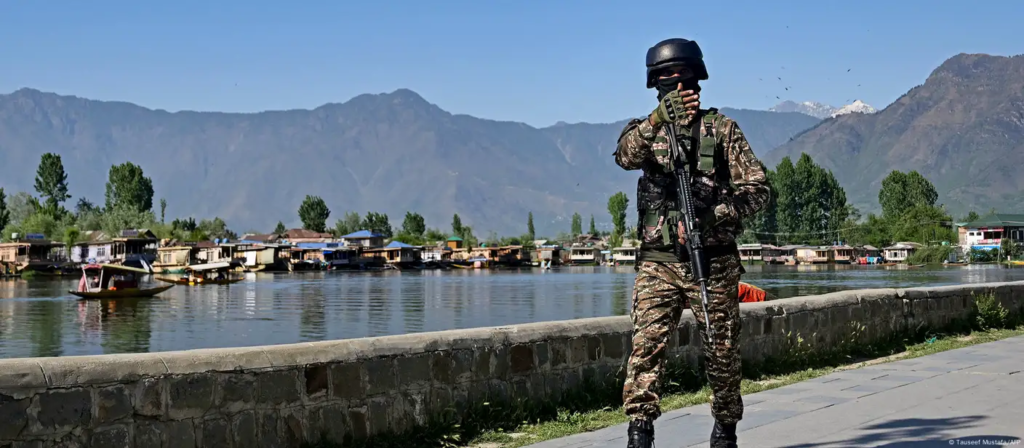
The Pahalgam Attack and India’s Response
The Pahalgam terror attack, unequivocally condemned by India as the work of Pakistan-backed militants, has triggered a wave of anger and calls for decisive action within India. While Pakistan has vehemently denied any involvement and proposed a neutral investigation, the accusations from New Delhi have been sharp and resolute. The Indian government, led by Prime Minister Narendra Modi, has reportedly granted its armed forces “complete operational freedom” to respond to the attack, signaling a potential shift towards a more assertive stance. This directive, coupled with heightened military activity and rhetoric emanating from India, has understandably put Islamabad on high alert.
Pakistan’s Warning of Imminent Strike
The statement from the Pakistani minister, claiming “credible intelligence” of an impending Indian military strike within a narrow 24-36 hour window, must be viewed within this context of heightened animosity and suspicion. While the specifics of this intelligence remain undisclosed, the urgency and gravity of the warning cannot be dismissed lightly. It reflects a deep-seated fear within Pakistan that India, fueled by public outrage and a perceived need for retribution, might opt for military action across the Line of Control (LoC) or even further into Pakistani territory.
The Enduring Kashmir Conflict
This situation is further complicated by the long and fraught history between India and Pakistan, particularly concerning the disputed region of Kashmir, where Pahalgam is located. Both nations claim the territory in its entirety and have fought multiple wars over it. The region has been a hotbed of militancy for decades, with each side accusing the other of supporting proxy groups and fomenting unrest. The Pahalgam attack, regardless of the actual perpetrators, has unfortunately become another flashpoint in this enduring conflict, providing a fresh catalyst for potential escalation.
International Concerns and the Nuclear Dimension
The international community has also taken note of the rising tensions. The United Nations has voiced concerns about the “catastrophic” consequences of a potential military confrontation between the two nuclear powers, urging restraint and dialogue. Several nations have also called for de-escalation and urged both sides to avoid any actions that could further destabilize the region. The involvement of nuclear arsenals on both sides adds a chilling dimension to the crisis, making any miscalculation or escalation potentially devastating.
An Atmosphere of Uncertainty and Fear
In the immediate aftermath of the Pakistani minister’s warning, the atmosphere remains tense and uncertain. While India has not officially confirmed any imminent military action, the prevailing sentiment within the country suggests a strong desire for a robust response to the terror attack. Pakistan, on the other hand, is bracing for potential retaliation, emphasizing its readiness to defend its sovereignty.
The Precarious Path Forward
The path forward requires a delicate balancing act. India’s legitimate need to address terrorism emanating from its borders must be weighed against the potential for triggering a wider conflict with Pakistan. Similarly, Pakistan’s concerns about its territorial integrity must be addressed while ensuring that it takes credible and verifiable steps to prevent its territory from being used for cross-border terrorism.
The Urgent Need for De-escalation
Ultimately, de-escalation will require diplomatic engagement and a commitment from both sides to prioritize dialogue over confrontation. The international community can play a crucial role in facilitating communication and encouraging restraint. However, the immediate future remains precarious, overshadowed by the tragic events in Pahalgam and the ominous warnings of potential military action. The coming days will be critical in determining whether the shadow of this terror attack will lead to further conflict or if cooler heads will prevail, steering the region away from the brink.

